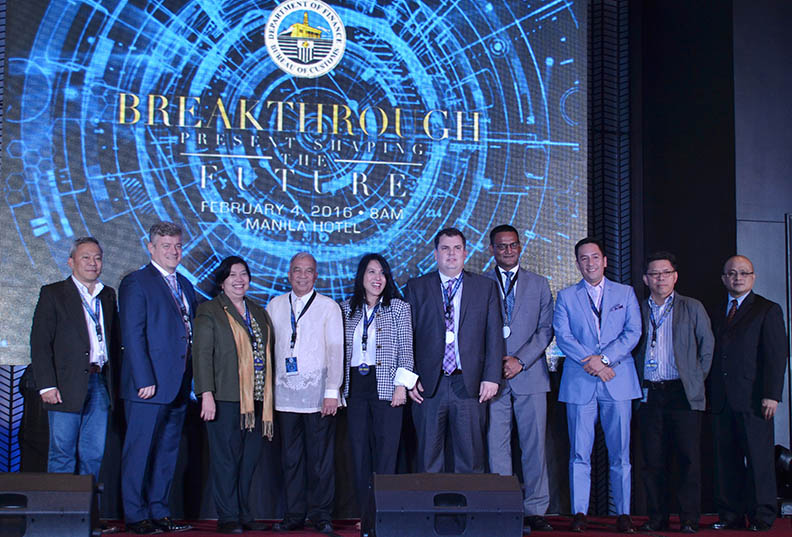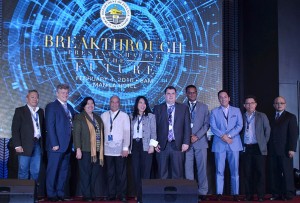

The Philippine Bureau of Customs (BOC) is embarking on six projects designed to upgrade its information technology systems.
The projects, to be implemented with the help of private companies, come at a cost of P222 million paid for by the BOC, according to Management Information System and Technology Group (MISTG) deputy commissioner Dennis Reyes.
In a statement, BOC said the projects will equip the bureau with robust information technology systems that “enhance and secure the services it is mandated to provide its stakeholders, aligned with the national government’s push towards trade facilitation, while equipping its regulatory, intelligence and law enforcement units with the necessary foundations to enhance its profiling and decision support capabilities.”
Customs commissioner Alberto Lina said the demands of the Customs Modernization and Tariff Act (CMTA), recently ratified by Congress, compelled the bureau to “develop the capability not only to process data, but, in terms of cyber-security, develop the capability to both defend and hunt down perpetrators of cyber-criminality and its physical counterpart activities.” The CMTA supports the use of IT in BOC operations.
The projects will be implemented by companies that won bids conducted last year: Microsoft, FireEye, Inc., PLDT, Amazon Web Services, Beacon Solutions, Inc., Rivo Software, EMC, and Oracle Philippines.
MISTG’s Reyes, in an interview with PortCalls on the sidelines of BOC’s “Breakthrough: Shaping the Future” event on February 4 to announce the partnership, said there has been much focus on BOC’s electronic-to-mobile (E2M) system as well as the National Single Window (NSW). The e2m frequently bogs down while the NSW is not yet completely operational.
But what’s “left unattended… (are) the core fundamentals of technology enterprise,” Reyes said.
In reality, he explained, “it’s not E2M, it’s the network connecting both sides” that has caused the bureau much problems.
Asked whether the projects will minimize breakdowns in E2M, Reyes said things “will get worse before (they) get better.”
The six projects are:
- The Infrastructure Optimization Project, which focuses on providing a secure platform with access and authentication controls to deliver modern systems and applications; delivery of highly-available and mission-critical business applications to support Customs operations by enhancing existing client management processes and systems; enhancing quality of service of business solutions through re-engineered IT support, modern tools, new delivery channels and unified data protection; and optimizing resources across public and private cloud to deliver capabilities such as deep application diagnostics, infrastructure monitoring and comprehensive configuration management.
- The Cyber Security Solution Project that will “effectively address the current threat landscape in cyber security including its computer systems and ICT infrastructure, emails and portal.” BOC is partnering with the Development Bank of the Philippines-Data Center, Inc. and publicly-listed US network security company FireEye for this program which aims to fill security gaps and stop advanced malware and other persistent attacks through intrusion prevention systems, in the process securing BOC data.
- The Data Center and Network Rehabilitation Project that aims to enhance reliability of BOC’s data center, including its facilities, to make its IT operations 24/7. At present, the BOC data center contains the E2M system and NSW. BOC will acquire new IT systems and the data center will host new servers to run these systems.
- The Managed Wide Area Network and Internet Connectivity Project designed to significantly improve transmission and security of data over the network and internet by providing managed network service; upgraded internet productivity; upgraded IPVPN bandwidth; delivery of new network equipment; and implementation of new network design.
- The Cloud-Base Engineered Infrastructure Project that will give the current E2M a boost in performance and service availability by temporarily transferring the system from the legacy and near end-of-life hardware into a high-performance cloud platform without having to alter the base technology architecture that forms part of the complete E2M offering. Provisioning for a disaster recovery environment is also part of this project.
- The Rivo Operations Management Platform (OMP) which will provide the BOC capability to define and deploy business rules, process, workflow-driven full lifecycle management applications equipped with out-of-the-box reporting and basic data analytics functionality with little to no programming requirement on the part of bureau personnel. Rivo OMP will provide the environment for frontline operations to participate in the design, configuration and deployment of business unit applications without depending on third-party consultants.
The IT projects come at a time when the BOC is embroiled in a court case involving its earlier planned P650-million computerization project, the Integrated Enhanced Customs Processing System (IECPS) and National Single Window Phase 2 project. The IECPS was set to, among others, replace BOC’s e2m.
One of the bidders for IECPS, the joint venture of Omni Prime and Intrasoft International Corp, had taken the BOC to court when Lina cancelled the bidding for the project. Omni Prime claimed former Customs Commissioner John Phillip Sevilla, Lina’s immediate predecessor, had already awarded the contract to the joint venture but Lina on May 6, two weeks after being sworn into office, had cancelled it.
READ: Lina, two other ex-BOC officials charged with plunder
The complainant said Lina’s decision effectively left BOC with the old system still in place, allegedly giving undue favor to value-added service provider E-Konek Pilipinas. Lina and his family have a 96.48% stake in the company.
Lina had cancelled the project as “there may be other customs data systems that are more efficient, cost-effective, and advantageous to the government.”
READ: BOC cancels bidding for P650M computerization project
The Supreme Court recently issued a temporary restraining order against the Manila court decision that prevented the BOC and the Department of Budget and Management-Procurement Service from cancelling the awarding of a BOC.
READ: BOC gets reprieve with SC TRO vs Manila court decision on computerization project
– Roumina Pablo




